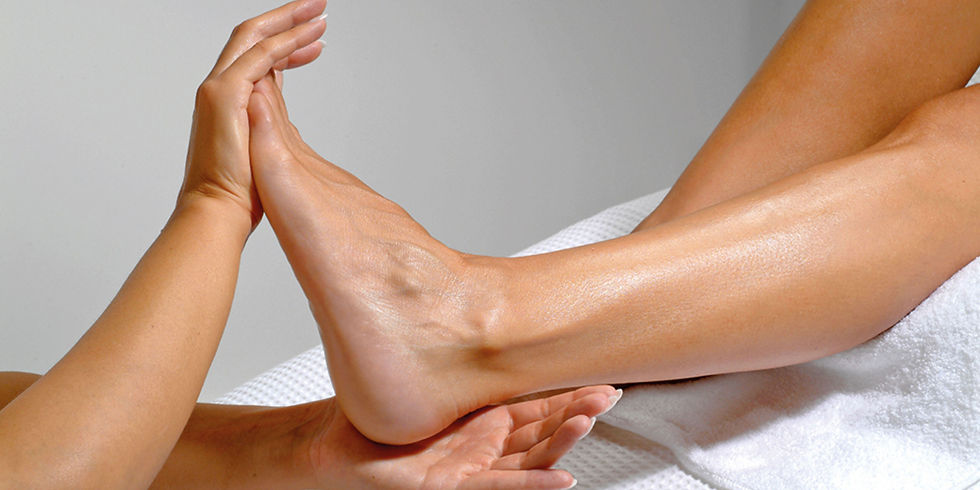Acupuncture Stimulates the Vagus Nerve
- Dr. Stephanie Bartolotti
- Dec 31, 2023
- 3 min read

As a physician, I have seen a huge uptick in the number of patients struggling with "unexplained" anxiety or digestive disorders like gastroparesis and IBS, which are actually caused by undiagnosed vagus nerve dysfunction. This has also lead to a lot of talk on social media lately about vagus nerve stimulation and how it can help so many people battling with anxiety and other stress-related conditions. There are many fancy gadgets out there that can be used to stimulate the vagus nerve, but did you know acupuncture is one of the best, safest, oldest, and most effective methods to do this?! In fact, one of the major the reasons acupuncture is so amazing is because it treats vagus nerve dysfunction, which is the underlying cause for so many chronic health conditions. In this article, I will help you understand what the vagus nerve is all about, the symptoms of dysfunction and how you can treat it.
What is exactly is the vagus nerve?
Your vagus nerves (cranial nerve X or 10) are the longest cranial nerves in your body that run from your brain down to your large intestine on both left and right sides of the body. The vagus nerves are responsible for sending information between your brain, heart and digestive system. Vagal nerves also make up a whopping 75% of the nerve fibers of your parasympathetic nervous system, your body's "rest and digest" system. These vagal nerves play such a vital role in the involuntary sensory and motor functions of the body including heart rate, blood pressure, digestion, breathing, coughing, swallowing, vomiting, gagging, taste, speech, urine output, immune response, mucus and saliva production, skin and muscle sensation, and mood.

Do you have vagus nerve dysfunction?
If you are dealing with chronic stress, inflammation, nerve damage, or chronic health conditions including autoimmune disorders, diabetes, or heart disease, chances are you have vagus nerve dysfunction. Your vagus nerve can also be negatively impacted by lifestyle factors such as chronic lack of sleep, sedentary lifestyle and poor diet. Damage to the vagus nerve is also common in those who have sustained head, neck or chest injuries.
Symptoms of vagus nerve dysfunction:
anxiety or depression
heart palpitations
irregular heart beat or heart rate
changes in blood pressure or blood sugar
dizziness or fainting
difficulty swallowing
loss of appetite
feeling full easily
unexplained weight loss
nausea & vomiting
chronic cough
acid reflux
frequent clearing of the throat
hoarseness, wheezing or loss of voice
chronic digestive issues
constipation or diarrhea
abdominal pain and/or bloating
dry skin
lack of sweat
loss of taste
ringing in the ears
hearing loss
loss of gag reflex
Disorders caused by vagus nerve dysfunction or damage:
gastroparesis
fibromyalgia
anxiety disorders
irritable bowel syndrome (IBS)
neurogenic bladder
tinnitus
migraines
arrhythmia

Acupuncture for the treatment of vagus nerve dysfunction
Specific acupuncture points are used to stimulate the vagus nerve to promote relaxation, reduce stress and anxiety, regulate autonomic function, improve digestion and immune function, and promote overall healing. Acupuncture has also been proven in studies to regulate autonomic function and heart rate variability and reduce inflammation, all factors related to vagus nerve dysfunction. Acupuncture points located on the abdomen (Ren12), chest (Ren17), wrists (H7, LU7, and P6), legs (ST36), head (Du20), neck (ST9) and ears all work to stimulate the vagus nerve in addition to treating digestive issues, stress and anxiety. In conjunction with acupuncture, vagus nerve function can also be improved by doing yoga, massage therapy, meditation, exercise, deep breathing, singing, humming, laughing and gargling.
What happens when the vagus nerve is stimulated:
your stress response is balanced
communication between your brain and body is improved
heart rate and blood pressure is lowered
heart rate variability improves
insulin & glucose levels regulate
gastrointestinal contractions & secretions are stimulated
anxiety & depression are reduced
breathing patterns are improved
inflammation is supressed
internal awareness is improved
HPA axis is regulated
As you can see, when the vagus nerve is activated, so many amazing things happen in both the body and brain! If you are struggling with the symptoms of vagus nerve dysfunction, anxiety or chronic digestive problems, acupuncture can help you to turn your life around and finally begin to heal. Book your appointment today and experience the ultimate feeling of relaxation through vagus nerve stimulation with acupuncture!









Comments